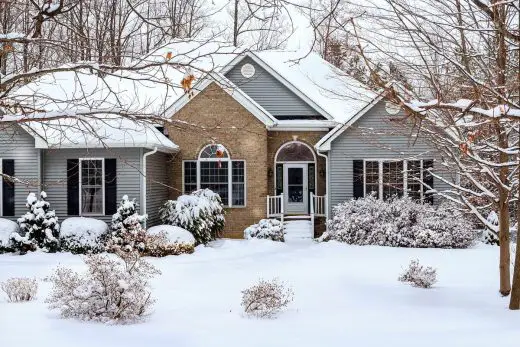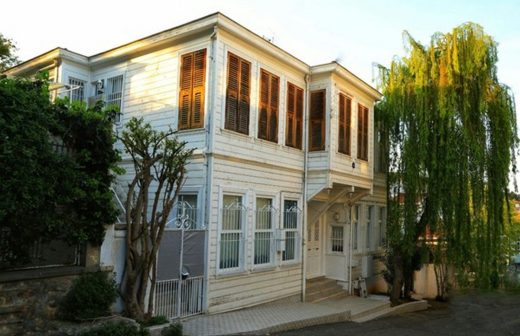Building siding maintenance needs, Canada house upkeep, Canadian building roofing
Assessing the Maintenance Needs of Your Building’s Siding Guide
August 29, 2024
The siding on your building is more than just an aesthetic feature; it serves as a crucial barrier that protects the structure from the elements, insulates against temperature extremes, and contributes to energy efficiency. Over time, however, even the most durable materials can deteriorate, leading to potential issues that can compromise the integrity of your building – so, regularly assessing the maintenance needs of your exterior is essential to ensure its longevity and effectiveness. This blog provides a guide on how to evaluate your building’s siding and address any maintenance needs promptly.
The Importance of Commercial Siding Maintenance
Maintenance is vital for several reasons; first and foremost, well-maintained exterior protects your building from water damage, mold growth, and pests, all of which can lead to costly repairs. Additionally, exterior renovation contributes to your building’s energy efficiency by providing insulation. When siding is compromised, it can result in higher energy bills due to heat loss in the winter and heat gain in the summer.
Regular maintenance also preserves the aesthetic appeal of your building, so a faded, cracked, or warped exterior can detract from the overall appearance and curb appeal, potentially lowering the property’s value. By keeping everything in good condition, you not only protect the structure but also maintain its visual appeal and marketability. Check out Alpine Exteriors in Calgary.
Signs That Your Siding Needs Attention
Regularly inspecting your commercial siding is the first step in identifying any maintenance needs. Here are some common signs that your exterior may require attention:
Cracks and Gaps
Cracks in the siding or gaps between panels can allow moisture to penetrate, leading to water damage and rot. These issues should be addressed promptly to prevent further deterioration.
Warping or Buckling
Warped or buckled siding is often a sign of water damage or improper installation. Warping can compromise the exterior’s ability to protect your building and should be corrected as soon as possible.
Fading and Discoloration
While some fading is normal due to sun exposure, significant discoloration may indicate that the siding’s protective coating has worn away, leaving it vulnerable to further damage.
Mold, Mildew, or Algae Growth
The presence of mold, mildew, or algae on the exterior can indicate moisture problems. These growths not only affect the appearance of your building but can also lead to structural issues if left untreated.
Peeling Paint or Loose Wallpaper Indoors
If you notice peeling paint or loose wallpaper inside your building, it could be a sign that your siding is no longer effectively insulating against moisture.
Higher Energy Bills
If your energy bills are steadily increasing, it may be due to compromised siding that is no longer providing adequate insulation.
Evaluating Different Siding Materials
Different commercial siding materials have varying maintenance needs. Understanding the specific requirements of your exterior type is crucial for effective upkeep:
Vinyl Siding
Vinyl is low maintenance, but it’s essential to check for cracks, warping, and fading. Power washing can remove dirt and mildew, but avoid using high pressure, which can damage the material.
Wood Siding
Wood requires more maintenance, including regular painting or staining to protect against moisture. Inspect for signs of rot, insect damage, and peeling paint. Repair or replace damaged sections to prevent further deterioration.
Fiber Cement Siding
Fiber cement is durable but can still crack or chip. Inspect for damage and repaint every 10-15 years to maintain its protective coating.
Brick or Stone Veneer
While durable, brick and stone veneer can develop cracks or mortar deterioration. Regular inspections and tuckpointing (repairing mortar joints) are necessary to maintain structural integrity. Regular examinations help maintain the longevity and aesthetic appeal of brick and stone veneer buildings. These repairs are guaranteed to last a lifetime when premium materials from reliable suppliers like I-XL Build are used. Homeowners and builders can create durable designs that range from classic to modern with the variety of brick veneers available. Selecting the appropriate veneer improves both structural durability and visual appeal.
Scheduling Regular Inspections and Maintenance
To keep your exterior in top condition, it’s essential to schedule regular inspections and maintenance. Ideally, you should inspect your siding at least twice a year—once in the spring and once in the fall, which allows you to catch and address any issues before they become serious problems.
In addition to regular inspections, consider hiring a professional to conduct a thorough assessment of your exterior every few years. Professionals can identify subtle signs of damage that you may miss and recommend the best course of action for repairs or maintenance.
Addressing Repairs Promptly
When you identify issues with your exterior, it’s crucial to address them promptly; small problems like cracks or loose panels can quickly escalate into more significant issues if left unattended. Repairing or replacing damaged sections of siding will help maintain the overall integrity of your building and prevent more costly repairs down the line.
Partner with Commercial Siding Experts
Assessing the maintenance needs of your commercial building’s exterior siding is a critical aspect of property upkeep – so by regularly inspecting your siding, understanding the specific needs of the materials, and addressing any issues promptly, you can protect your building from damage, maintain its aesthetic appeal, and ensure its longevity. Taking a proactive approach to maintenance preserves the value of your property and provides peace of mind knowing that your building is well-protected from the elements.
Comments on this guide to building siding maintenance needs at home – Canadian homeowners design ideas advice article are welcome.
Building Siding Material
Building External Siding Materials
Home with siding installation and repair
Reasons to replace your home’s siding
Common siding problems to repair
Guide to exterior siding materials and maintenance
Building
Residential Property
Comments / photos for the Assessing the Maintenance Needs of Your Building’s Siding: A Comprehensive Guide page welcome.








